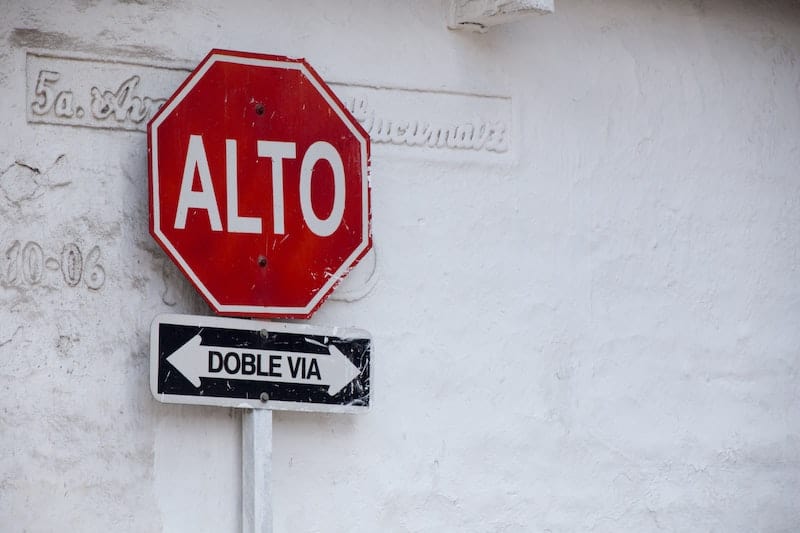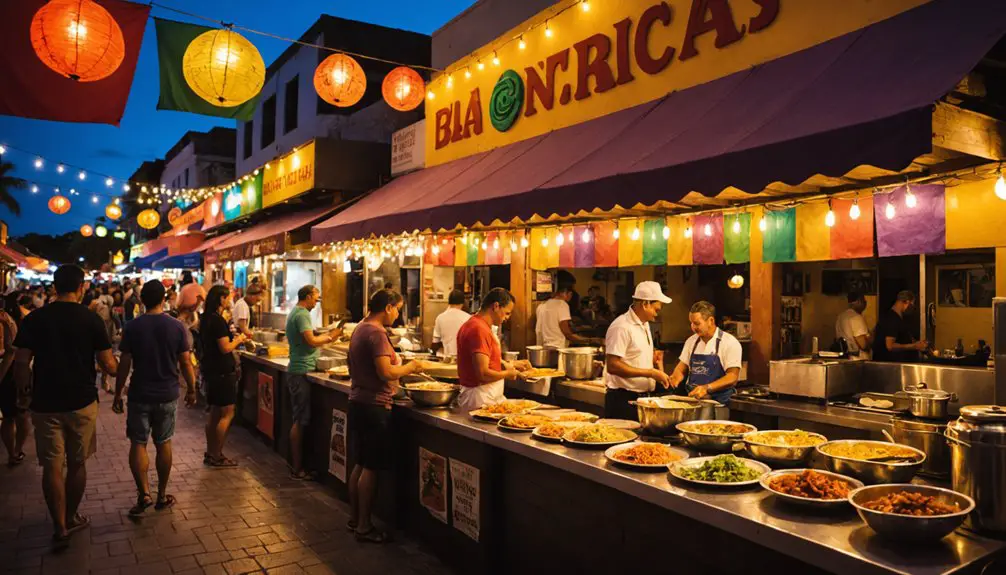
The white sandy beaches… the poolside cocktails… the bustling El Centro market… did we mention the beach? All major attractions that make Cancún one of the most visited places in Mexico. Or, North America for that matter. Right about now, a trip to Cancún sounds amazing. You might wonder how much Spanish you need to know before you start planning.
Do people speak English in Cancún? The answer is quite simple, the majority of the population in Cancún does speak English, and you need to know very little Spanish, if any, when visiting Cancún.
If you’re preparing for your own trip to Cancún, or just dreaming of doing so one day, and the language barrier is intimidating, we’ve got good news. Or maybe you’d just like to learn some Spanish in order to make your trip a little easier. No problem, amigo.
What Languages are Spoken in Cancún?
The people of Cancún are mostly bilingual, if not multilingual. There are three main languages that are spoken in the Cancún area:
- Spanish
- English
- Mayan
Spanish
The official language and language most frequently spoken in Cancún is Spanish. Those that are native to Mexico speak Spanish as their first language. This is what is most commonly spoken when those native to Mexico are speaking to one another.
Restaurants, hotels, markets, stores, and other businesses have signage that’s in Spanish. Signage along the roads and highways is also done in the native language. However, the letters used are the same, so they’re easy for those that speak English to read.
English
When you first set foot in Cancún, right off the airplane, you’ll be greeted by English speaking locals. If you’re worried that you don’t know enough Spanish or the Spanish you do know is pretty rusty, this will put your mind at ease right away.
Tourism is a major source of income in Cancún for many people, so speaking English is a way for them to communicate with tourists effectively. In more touristy areas, things are labeled in Spanish, as well as English.
However, some of the more recognizable chain stores and restaurants that you find in Cancún are notorious enough that they don’t need signs in both languages.
Mayan
Occasionally, you’ll hear some indigenous people speaking the ancient Mayan language amongst family members. It’s incredible to think that this language has stood the test of time and is still being used thousands of years later.
Those that speak Mayan are reminders of the rich culture and history that Mexico has, especially in the Yucatán peninsula, where Cancún is located. Belize, Guatemala, and Honduras are all Mexico’s neighbors, but Cancún is especially close to each of these where Mayan is still spoken, too.
How Much Spanish do You Need to Know in Cancún?
As we mentioned early on, it’s not necessary to know much Spanish at all. In fact, you’ll more than likely be able to pick up what you’ll need while in Cancún. But, it’s always polite to try to use the native language when you’re traveling, even if it’s just being able to say please and thank you.
What Spanish Words Are Helpful to Know?
Taking a crash course in the Spanish language before embarking on a quick vacation isn’t necessary. And, as we discussed, it’s easy enough to make your way through Cancún without any Spanish. But there are some words and phrases that would be helpful to understand and leave less room for miscommunications.
Simple Greetings
Saying good morning and hello are important greetings, especially in a country like Mexico, where there’s a lot of emphasis on manners and proper behavior. Rudeness isn’t well-received anywhere, but Mexico is a country that prides itself on etiquette.
It’s a gesture of kindness to be able to deliver a simple greeting, along with a smile. But also, it’s not exactly nice to ignore someone when they initiate the conversation. Knowing a few simple greetings can help you greet and be greeted appropriately:
- Hello: Hola
- Goodbye: Adios
- Good morning: Buenos dias
- Good afternoon: Buenas tardes
- Good evening: Buenas noches
Common Courtesy
Of course, por favor and de nada are the traditional way to say please and thank you. Being able to show gratitude, especially those that are working in a restaurant or hotel setting, is always the right thing to do. Even if your Spanish isn’t all that great, you’ll never regret at least being polite.
Numbers
Knowing the basic numbers, one through ten is helpful when traveling to Cancún. If you really want to go the extra mile, multiples of tens are also very beneficial. Numbers are everywhere, whether you’re eating at a restaurant or riding in a taxi. Knowing these will just make things easier for everyone involved in the communication, whether you’re asking for information or being given information.
- One: uno
- Two: dos
- Three: tres
- Four: cuatro
- Five: quince
- Six: seis
- Seven: siete
- Eight: ocho
- Nine: nueve
- Ten: dies
- Twenty: veinte
- Thirty: treinta
- Forty: cuarenta
- Fifty: cincuenta
Directions
While it’s not likely that you’ll stop and ask a stranger for directions since we’re oftentimes able to simply plug the name of a location or an address into our smartphones and be led directly where we want to go.
But, it’s not unheard of that a GPS can take you out of the way, or send you somewhere completely off track. This is when it’s helpful to understand simple directional phrases, like these:
- In front of delante de
- In back of: detras de
- Near: cerca de
- Far: lejos de
- To the left of: a la izquierda de
- To the right of: a la derecha de
- North: norte
- South: sur
- East: este
- West: oeste
When Not Knowing Spanish Might Be a Challenge
Traveling is stressful enough on its own. Remembering to pack everything, saving money, spending money, figuring out the currency exchange rate… these things all take up a lot of brain power. When I travel, I like to make sure I’m doing just about everything that I can, to make things run as smoothly as possible.
While we’ve discussed that knowing Spanish in Cancún is not essential, it won’t make or break your trip; there are a few times that you might find yourself wishing that you did know just a little more than the basics. In addition to overall kindness and being polite to others, here are a few instances when more than simple Spanish might be helpful…
Venturing Outside the City
There are lots of things to do outside of Cancún, especially if you’re into adventure. The coastal towns along Mexico’s eastern shore aren’t too far from Cancún, but they’re also not the most well-known tourism spots. Not yet, anyway.
Visiting these smaller towns means you’ll have to communicate for transportation, and most likely for eating and drinking. If you’re planning on visiting any of these places, knowing a few key phrases is just going to make the experience better.
Markets
There are lots of open markets and shopping areas in and around Cancún. Almost everyone there speaks a little bit of English. But, some of the people aren’t native to the big city of Cancún, so they don’t get to practice their English as much.
There’s a fair amount of negotiation that goes on in markets, and things are not always labeled with prices. Why not meet them in the middle, starting a conversation in Spanish? This can help communication run a little smoother.




